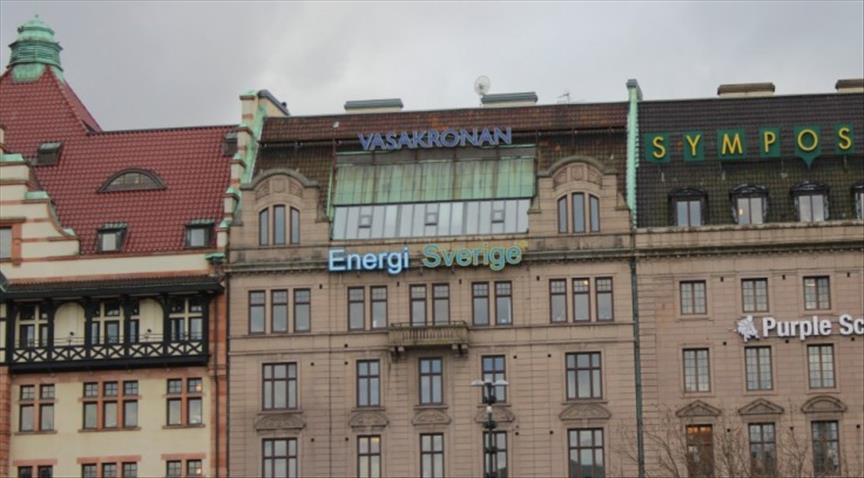Sweden would welcome cooperation with Turkey on efficient renewable projects, the Swedish Energy Minister Ibrahim Baylan told The Anadolu Agency on Wednesday.
"At the end of January this year a delegation from the ministry met with counter-parts in Ankara to discuss bilateral co-operation. Exchange of experiences on efficient policies for renewables was one area where there was a mutual interest," Baylan explained.
Sweden is known for its leading technology for waste management and biogas. The country with its advanced system of rubbish sorting produces energy from all kinds of waste materials in its waste-to-energy industry.
Around one million households are heated by biogas, produced from 99 percent of Sweden's household waste, and around 300,000 households are powered by it. Three tons of burned rubbish contains as much as one ton of fuel oil.
Biogas is one of the products from any organic matter which is broken down by anaerobic digestion. The raw material source can come from crops like maize, household waste; residue from the agricultural and food industry, animal manure and sewage sludge. It is produced naturally in landfills.
According to the Biogas Report 2013, the combined amount of electrical and thermal energy produced today from biogas in Europe corresponds to the annual consumption of the combined households in Sweden. Such production could replace 15 coal power plants with an average capacity of 500 MW of electricity.
"We would of course be happy to share our experience on how to use waste for heating purposes in cities," he said, adding that the city of Istanbul has already shown an interest in Sweden's experience in Stockholm.
At present, Istanbul uses waste material only for the production of electricity and so far not for either heating or using biogas as a fuel in transportation.
In Istanbul a total of 16 thousand tons of waste is collected everyday by ISTAÇ, an incorporated company which is a shareholder of Istanbul's metropolitan municipality.
"After the separation of waste into plastic, metal and paper, the rest of the waste is used to produce electricity," said Firat Sarp, an energy expert at ISTAÇ Inc.
Sarp said the installed capacity of the facility where they generate electricity is 48 MW, but actively 41 MW of electricity is produced.
However, the facility uses just organic compounds to produce biogas to directly convert electricity unlike the Swedish state which uses the biogas for a range of energy alternatives.
Swedish Biogas International designs, constructs, owns and operates integrated bio-methane plants for vehicle fuel and bio fertilizer production, which they produce from the waste.
By producing energy via waste in Istanbul, ISTAÇ Inc. decreases 1.2 million tons of CO2 per year. This figure equates to the removal of 600 thousands car from traffic.
Swedish Minister Baylan also said there is great potential for renewables in Turkey, such as for hydro, geothermal and wind energy.
Sweden is also the leading country in the EU which has surpassed its 2020 renewables goals, according to recent EuroStat data.
In 2013, Sweden had the highest share at 52.1 percent of energy from renewable sources in its gross final consumption of energy, ahead of Latvia with 37.1 percent and Finland with 36.8 percent, according to EuroStat.
The Swedish Minister Baylan is expected to visit Turkey on May 15 to 16 to hold further discussions on renewable energy.
By Gulsen Cagatay
Anadolu Agency
gulsen.cagatay@aa.com.tr


